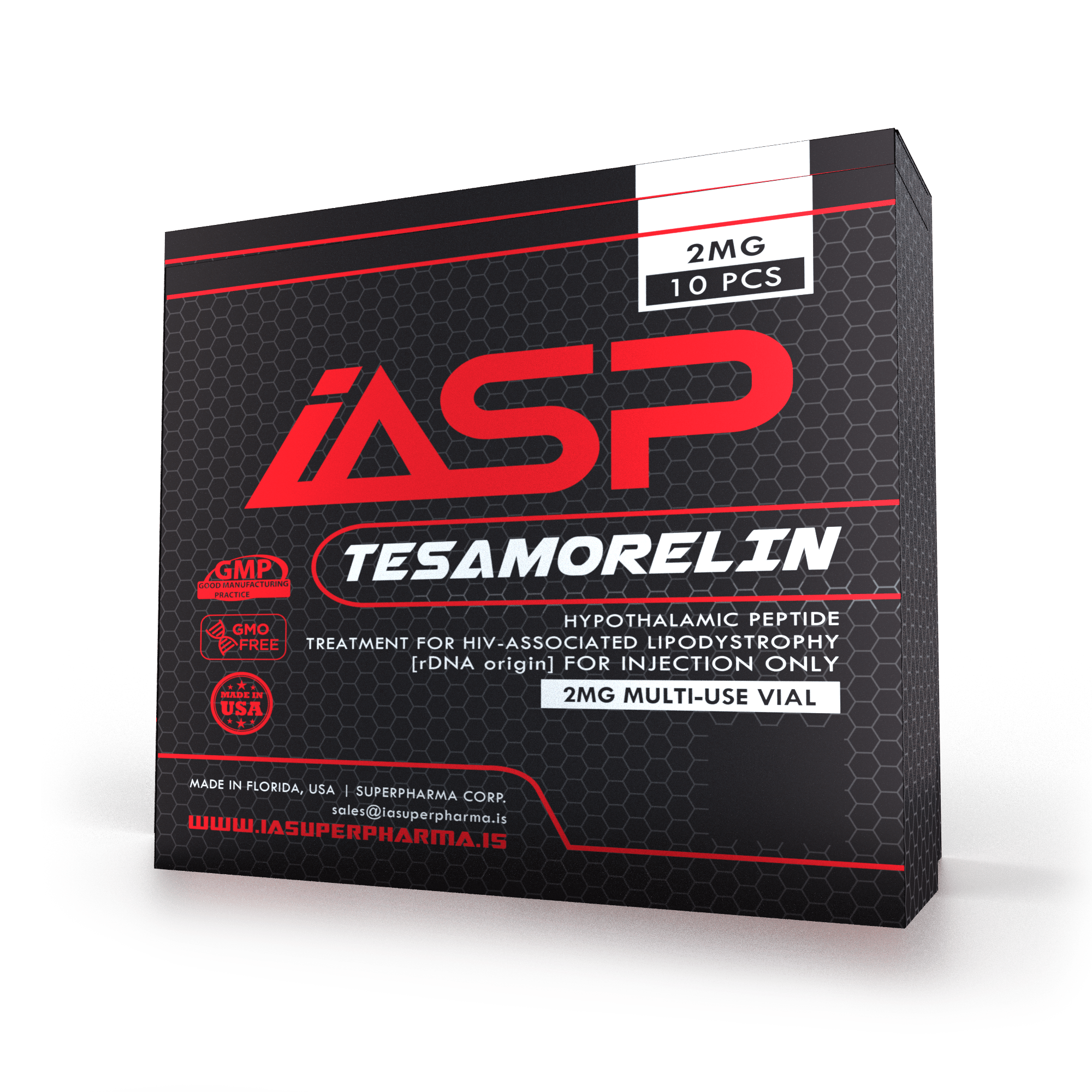This product is a box of 10 vials.
What Is Tesamorelin ?
Tesamorelin is a synthetic peptide made up of 44 amino acids. It mimics the action of growth hormone-releasing hormone (GHRH), which stimulates the release of growth hormone in the body. A unique addition, trans-3-hexanoic acid, makes tesamorelin more stable in the blood, extending its effectiveness. In 2010, the FDA approved tesamorelin for treating HIV-associated lipodystrophy, a condition where fat builds up abnormally in the body. It's also being studied for improving nerve repair, slowing memory decline in early dementia, and reducing excess body fat.
Sequence (Single Letter): Unk-Tyr-Ala-Asp-Ala-Ile-Phe-Thr-Asn-Ser-Tyr-Arg-Lys-Val-Leu-Gly-Gln-Leu-Ser-Ala-Arg-Lys-Leu-Leu-Gln-Asp-Ile-Met-Ser-Arg-Gln-Gln-Gly-Glu-Ser-Asn-Gln-Glu-Arg-Gly-Ala-Arg-Ala-Arg-Leu
Molecular Formula: C223H370N72O69S
Molecular Weight: 5195.908 g/mol
PubChem CID: 44147413
CAS Number: 901758-09-6
Tesamorelin works like natural GHRH and other similar peptides, such as sermorelin or CJC-1295. Its added stability from trans-3-hexanoic acid allows it to last longer in the body while maintaining the natural rhythm of growth hormone release, which reduces side effects compared to other treatments.
Treating HIV-Associated Lipodystrophy
Tesamorelin is mainly used to treat HIV-associated lipodystrophy, a condition where fat accumulates abnormally, especially in the abdomen, due to HIV infection or side effects of HIV medications. Before tesamorelin, treatment options were limited to diet, exercise, or ineffective drugs, with surgery as a last resort. Tesamorelin can reduce excess fat by nearly 20% in people with this condition and is about four times more effective than other available treatments combined.
Heart Health in HIV Patients
People with HIV have a higher risk of heart disease, partly due to abnormal fat buildup and the effects of HIV medications. Tesamorelin not only reduces excess fat but also lowers triglyceride levels, total cholesterol, and other harmful fats in the blood. Reducing fat in the abdomen by 15% with tesamorelin can lead to a significant drop in triglyceride levels. Excess fat in areas like the abdomen, liver, or around the heart also causes inflammation, which increases heart disease risk. By reducing this fat, tesamorelin lowers inflammation and heart disease risk.
Growth Hormone Deficiency in HIV
HIV treatments can disrupt hormone levels, leading to growth hormone deficiency in about one-third of HIV patients on these therapies. This deficiency may contribute to fat buildup in lipodystrophy. Tesamorelin is a safer and more effective way to boost growth hormone levels compared to directly administering growth hormone, especially for people with HIV.
Repairing Nerve Damage
Peripheral nerve damage, caused by injury, diabetes, or surgery, can lead to problems with movement and sensation. Nerve cells are hard to repair, but tesamorelin shows promise in speeding up and improving nerve healing, making it a leading candidate for further research in this area.
Slowing Memory Decline
Early research suggests tesamorelin may help improve memory in people with early-stage dementia. A major study found that tesamorelin and similar peptides can increase levels of a brain chemical (GABA) and decrease another (myo-inositol), which may help protect brain function. This opens the door to using tesamorelin for dementia treatment and sparks new ideas for research into preventing or curing dementia.
Ongoing Research
Since tesamorelin is already FDA-approved for HIV-associated lipodystrophy, it's a strong candidate for further studies. Researchers are exploring its potential to reduce heart disease risk in HIV patients, improve nerve repair after injury, and slow dementia progression. Clinical trials are underway to investigate these possibilities.
Curious about Tesamorelin?
Join our Facebook group to engage directly with thousands of others who use this product, and follow our Facebook/IG pages for hot updates and product announcements!


